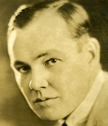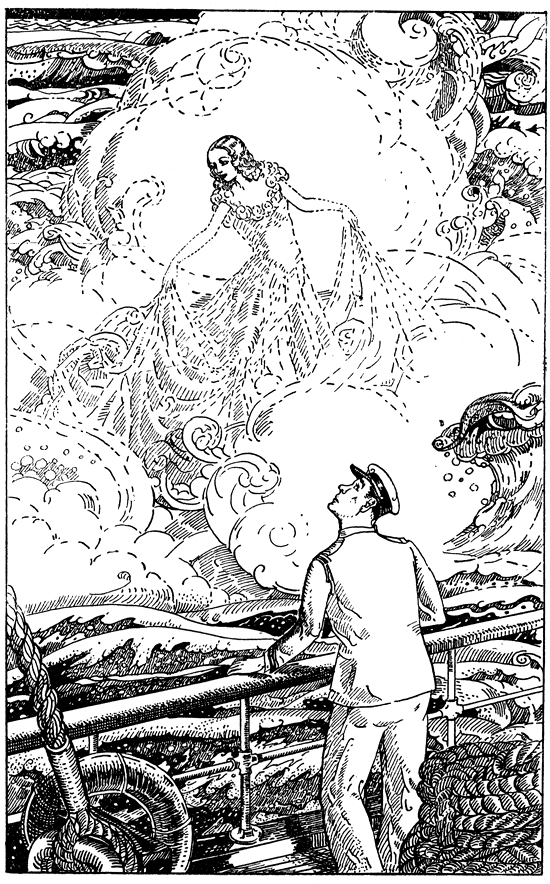 Charles Ray was a popular juvenile star in the 1910s and ’20s, but by the ’30s, his career was on the rocks, and he turned to writing. Here’s another in a series of offerings from his book, Hollywood Shorts, a collection of short stories set in Tinseltown.
Charles Ray was a popular juvenile star in the 1910s and ’20s, but by the ’30s, his career was on the rocks, and he turned to writing. Here’s another in a series of offerings from his book, Hollywood Shorts, a collection of short stories set in Tinseltown.Flash was a high-powered publicity man. Hardly anyone knew his last name. Anyway it was seldom voiced. He was called the maker of stars. Lived up to his name too, excepting one particular prophecy. Liked by everyone, he moved into any room with a hot-cha-cha expression, snapped his fingers, asked, “Have you heard this one?” and he fun began.
In the throes of a lively New York City sojourn, he entered a drawing room one day at cocktail time and began: “Hot-cha-ch—” But he left the last syllable forever unexpressed. Standing captivated by a striking platinum blonde, he mumbled: “China-blue eyes.” With top speed, he found her name to be Navine Hayden.
“Gorgeous!” he whispered after his introduction.
Exploitation details flashed like lightning through his mind as he basked in the intoxication of her presence. Later, on a moonlit veranda, he emphasized and amplified his ideas.
“I’m christening you Gorgeous from now on,” he assured her, and in a delicious fog of fancy, prophesied: “I’m putting you over with that.”
The world for which he considered himself fitted had suddenly started paying him dividends.
“Yep. Gorgeous!” he pronounced meditatively, as his mind shot months ahead. “Little lady, we go travelin’ from this moment!”
Spellbound, he watched her china-blue eyes, watched the luscious lips chatter on to him as if they had known him always and watched a golden sheen highlight the waves in her hair, as a new moon ricochets across a golden sea.
She came to the Coast, heralded as extensively as any girl from a glorified list of the Follies. Yet the half of her charm was never told. Her presence in any room was compelling. She could perceptibly change any corner of a rust-colored world.
Screen and sound tests were made, pronounced exceptional. Then a contract was drawn with special options.
“The find of a lifetime,” close friends whispered to Flash. “Why, you’ll collect a hot million before you’re through managing her.”
To such speculation, Flash always replied with a humorous, miserly rubbing of the palms to satisfy them, and wiggled his eyebrows comically. The flippant attitude only concealed a different ambition within, and a deep sun-tan camouflaged what might have otherwise appeared as a flushed countenance. Doubly inspired by the spirit of such compliments, he would retire to his office, where he made his typewriter sing in issuing forth colorful words that might proclaim a new star in the celestial heavens of Hollywood.
“You’re over!” he often mumbled like a ventriloquist whenever very near to her, regardless of surroundings.
But now and then, after such terse mumblings, he would snap his fingers as if sealing his conviction. Then feeling strangely uncertain, he would relax with a smile and shake his head, as if blocking out some gauzy vision which he could not fathom.
At last the first story was okayed, the scenario perfected, the cast assembled, and the starting date announced.
The first day’s work reeled along smoothly, and the large stage was filled with low, complimentary murmurs, always echoing the single word gorgeous.
“Didn’t I tell you?” Flash mumbled again and again to his confreres. “All that girl needs is training, and I intend to see that she gets it.”
For hours, he tiptoed his way in and out among myriad spotlights, infinitely more interested in the many photographic angles than the director was. At length, to still his happy nervousness, he retired behind a pile of scenery in a dark corner to watch undisturbed, compelled by her china-blue eyes.
Suddenly, against the walls of the huge stage rang a terrible scream which glued everyone like puppets to the floor. The criss-cross of a sunlight arc had ignited her delicate chiffon dress, and Gorgeous ran the length of the stage enveloped in flames.
Shouts for her to stop running and to roll on the floor were unheeded. Hysterically, she darted in and out of shell scenery, the speed of her action only fanning the flames like a bellows.
First to reach her, Flash hugged the slender form like a father, trying to subdue the fire with his own body. But it was too late. The delicate fabric about her lungs and throat had flared up with lapping fangs of death. Suffocated, her body went limp in her protector’s arms. When the rest of the smoldering lace was extinguished, it was evident that life had gone out of her.
A terrible silence ensued which gripped the heart like a vise. Hours passed, during which few words were spoken. Everyone walked out in the air, crossing and recrossing each other’s path about the lot, with no destination.
Flash was not seen again after the funeral.

Some two years later, a former pal evidenced a letter from him, bearing the postmark of Bombay. The brief missive explained that he enjoyed the life of a nomad; that he liked working on the boats out of China; that the South Seas were as wonderfully picturesque in one way as the coasts of India were in another; that Alexandria had been an inspiring city to him, and that the Mediterranean was a gorgeous blue, the hue of human eyes.
< Read "Exit Alley" | Read “It Stinks” >

